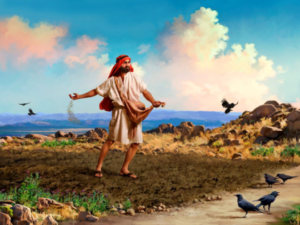Only Fans or Only Christians?
There is a website subscription service that many Christian parents and grandparents know nothing about—but it has taken the world by storm. This website has over 50 million registered users and more than 1 million content creators. It’s called OnlyFans.
Founded in 2016, by British tech entrepreneur Timothy Stokely, OnlyFans was a place where content creators could offer exclusive content to their target audience. For instance, if you were a poet, you could read your poems online for people who paid a monthly fee to see your material. However, it didn’t take long for this site to become primarily about sexual content, lust, and debauchery.
Because it has few restrictions creators can post sexually suggestive images, pornography, and anything their creators are clamoring for. Creators get to pocket 80% of the earnings and OnlyFans keeps 20% as online host. Creators can pocket even more money with paid tips and paid private messages. One popular social media influencer made over 1 million dollars the first 24-hours after being a content creator. Did I mention this is a billion-dollar industry—and it’s not going away.
And so, what began innocently as a poet reading a poem, transformed into someone in their underwear reading poetry while thousands tune in to watch. According to their statistics, OnlyFans is adding about 1,000 new registered users every hour. Imagine a popular high school cheerleader who is able to profit from her popularity by posting exclusive and suggestive images. This is the new reality for our children and grandchildren.
I spent some time trying to think of any positive reason a Christian should be on OnlyFans. I admit up front that there are probably a few legitimate entrepreneurs out there who are still doing things like sharing cooking tips, giving parenting tips, or reading poems while fully clothed. But at this point, OnlyFans is known primarily for one thing—pornography.
Consider for a moment what this site is feeding. It is feeding lust, impurity, selfish ambition, debauchery, and even idolatry—as many of these content creators have become idols to paying customers. Is this website really worth risking eternity in heaven? Consider the inspired Words of Paul:
“Now the works of the flesh are evident, which are: adultery, fornication, uncleanness, lewdness, idolatry, sorcery, hatred, contentions, jealousies, outbursts of wrath, selfish ambitions, dissensions, heresies, envy, murders, drunkenness, revelries, and the like; of which I tell you beforehand, just as I also told you in time past, that those who practice such things will not inherit the kingdom of God” (Galatians 5:19-21).
Paul doesn’t mince words. He boldly points out that “those who practice such things will not inherit the kingdom of God.” Paying a monthly subscription to view someone in a provocative setting is the definition of “practicing” such things. Oh, and just in case a married Christian sees no problem in watching some young lady undress in her bedroom since they are not “technically doing anything,” allow me to gently remind you that your marriage is supposed to be a reflection of Christ’s love for the church. Honor your marriage and love your wife! I can’t see Jesus having an OnlyFans account.
Church we need to have an open and honest discussion about these practices. This is not holy or Christian behavior. Christians do not need OnlyFans accounts—and this includes our children. John wrote: “Do not love the world or the things in the world. If anyone loves the world, the love of the Father is not in him. For all that is in the world—the lust of the flesh, the lust of the eyes, and the pride of life—is not of the Father but is of the world. And the world is passing away, and the lust of it; but he who does the will of God abides forever” (1 John 2:15-17).
Our children do not need to be content creators for OnlyFans! I understand they may be “making money they can use to pay for college.” But if their way of making money is sinful or feeds lust, fornication, and immorality then their “selfish ambition” is not in line with what God approves of—and it needs to be stopped. Look at what Jesus said about gaining the whole world but losing your soul (Matthew 16:24).
The Bible is crystal clear about lust and sins of the flesh. (i.e.,1 Peter 2:11, Romans 13:14, , Proverbs 6:25, James 1:14, Romans 8:13) It is equally clear that we are not to cause others to stumble. (i.e., Romans 14:13). As Christians we have been charged to be holy like He is holy (1 Peter 1:15-16).
If you are involved in OnlyFans as a user or content creator let me encourage you to quit immediately. Guard your soul. Take up the whole armor of God and fight against the works of darkness. This really is a life and death situation—souls are at stake. James wrote: “Then, when desire has conceived, it gives birth to sin; and sin, when it is full-grown, brings forth death” (James 1:15). Stop feeding the desire and you will avoid death.




